International Programmes Department
Six-Month Programme: October 2026 to March 2027
The aim of this programme is to provide the building blocks for our students to excel academically in their chosen field, navigate the social and cultural differences between the UK and their home country, and live a rich and independent life in Oxford.
As a participant in the Six-Month Programme, you will have the chance to interact with students of the college. At its core, Hertford is not just a set of beautiful buildings but a community, held together by common values and friendship. We invite you to live alongside us at the college, and experience what it feels like to be a member of our student community.
Apply now! Applications now open for the 2026-27 six-month programme.
Please email the International Programmes department for more details on how to apply.

History of the programme
The programme has been running for almost twenty years and began with just a few Japanese university students. There is no other similar programme in Oxford that takes place during term-time.
Benefits for students
Oxford is the oldest English-speaking university in the world, with around 23,000 students, and is also one of the most ethnically diverse cities in the UK. 38 colleges make up the University, and many have beautiful, historic buildings close to Hertford in the centre of the city. Students on our programme can get involved in college sports and music and also attend a number of lectures in faculty buildings. They meet our undergraduate students, often forming long-standing friendships, and gain an insight into what it means to be an Oxford student. In addition, some of our students have returned to Oxford to embark on Master’s or DPhil (PhD) programmes.
Who can apply?
We welcome applications from all university students. The programme attracts those wishing to both improve their language skills and immerse themselves in UK culture in the beautiful, world-famous city of Oxford.
Extra-curricular
Programme students have the chance to join clubs and societies at Hertford College, and often become key members in supporting the work of societies such as the Oxford University Japanese Society (OUJS). Right from the beginning of their time here students are encouraged to join OUJS, which runs weekly evening classes for those wishing to learn Japanese. They are given the chance to teach others in a formal classroom setting, mainly focussing on conversation skills. After class, there is often a visit to a local pub, a good opportunity for our students to practise their English and make friends. Students can also join a host of other clubs and societies at Hertford.

Academic programme
The programme runs from October to March and comprises 20 weeks’ worth of study over the 6 months, broken down into a 20-hour week (Monday-Thursday plus Friday morning). On arrival, students are tested and divided into 2 teaching groups, with a different teacher taking each group. Our rigorous academic programme also includes a variety of cultural elements designed to enrich the students’ experience of being in a different country, looking both at the history of their hometown and artistic heritage the UK has to offer. Click the headings below to find out more about our teaching methods, academic and cultural modules.
-
Tutorials
Our teachers work closely with each student to prepare a bespoke course of individual study and closely monitor progress.
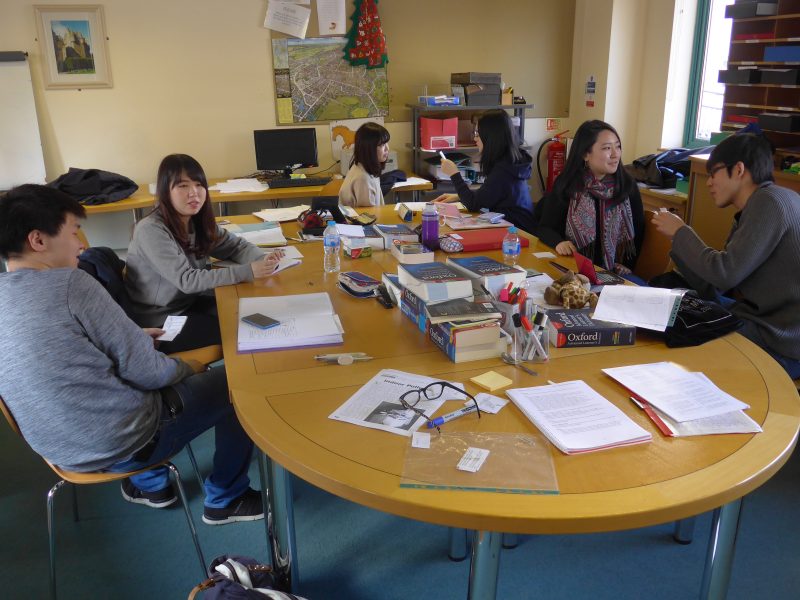
-
Feedback
The students complete a weekly feedback form asking them for their opinions on different aspects of the course, ranging from classes to accommodation. As a department, we take this feedback very seriously and it serves to improve the quality of what we offer.
-
Assessment
Students are assessed on formal presentations, team work, literary reviews, authentic field work and end of term tests (including TOEIC and IELTS). All the scores are recorded throughout the two terms and the universities receive a progress report as well as a grade transcript at the end of terms 1 and 2. The students are awarded a certificate of completion at the end of the programme.
-
Schedule
The following schedule is an example of a typical week in the first term. In the second term, there is more business and economics content, with the language classes covering more business vocabulary (plus associated task-based activities relating to working within companies) and the weekly lectures focussing on topics ranging from Brexit to global growth.
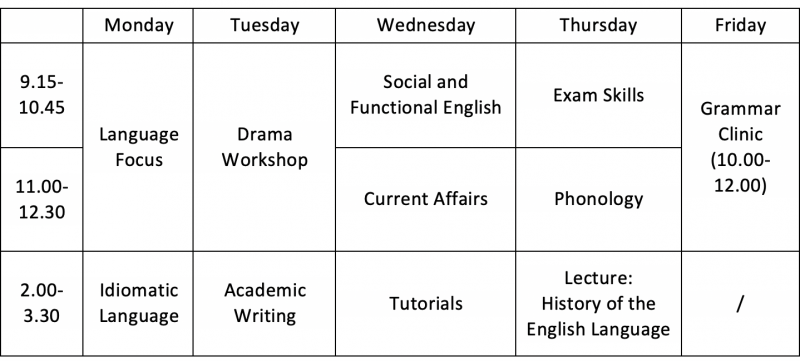
-
London visit
Students are taken to London in their first or second week to look around the National Gallery and then in the second term they go to the iconic St Paul’s Cathedral and Tate Modern art gallery. These visits accompany their lectures on ‘Art in Britain’ and ‘A Rise in Modern Architecture’.
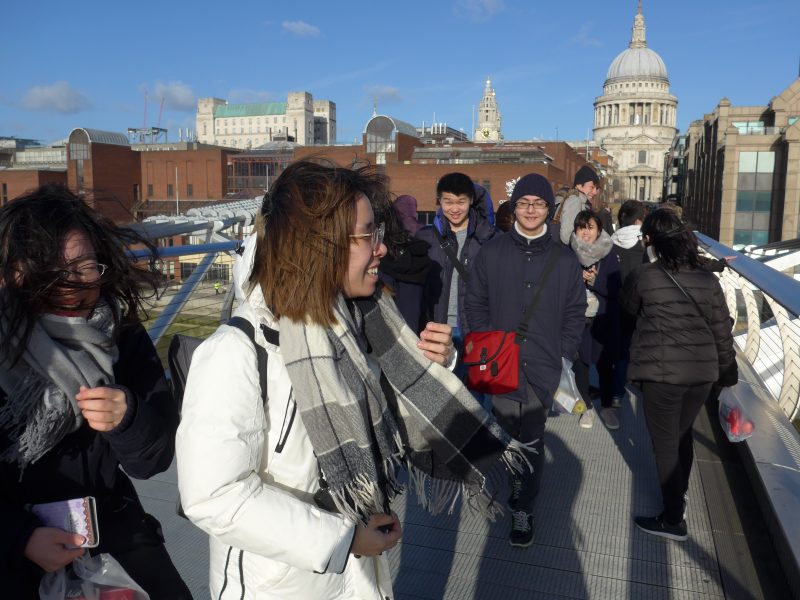
6-Month Group students’ London Visit
-
Jericho and Headington
The students learn about the history and culture of these two important historic Oxford neighbourhoods, led by an extremely knowledgeable teacher and local resident.
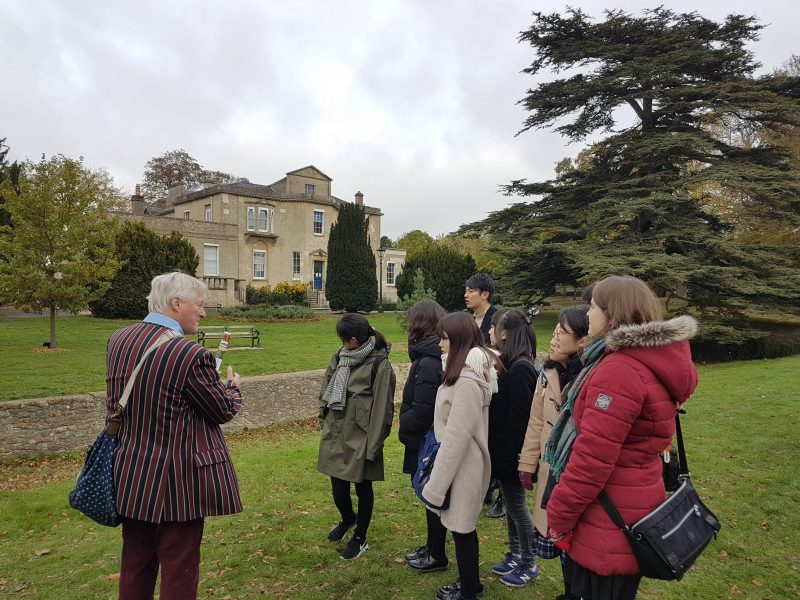
6-Month Group students exploring areas of Oxford – Headington
-
Primary school placement
In the second term, there is an opportunity for the students to try their hand at teaching. We spend one day in a local Oxford primary school where the students present aspects of their culture to groups of schoolchildren, and learn about managing a class at the same time!
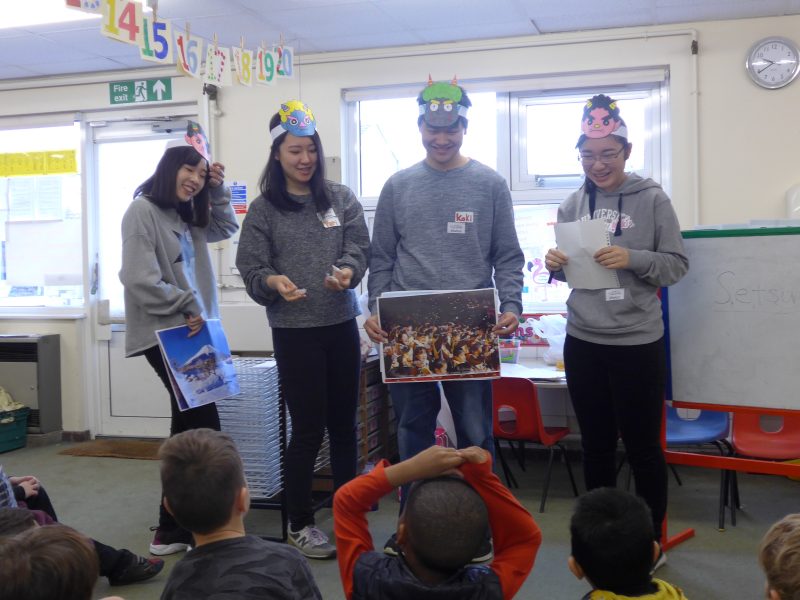
6-Month Group students visiting a local primary school in Oxford
-
Shakespeare drama workshop
Students take part in a drama workshop with our drama specialist, focussing on one of Shakespeare’s plays. They then put on a performance for all members of the department!
-
Language focus
These sessions enhance the students’ understanding of the language, covering areas of grammar, the study of lexis and improving fluency and accuracy in speaking and writing.
-
Academic writing
Students are led through a systematic and thorough approach to academic writing, with an emphasis on structure, appropriate language and paraphrasing from source material.
-
Current affairs
A springboard for discussion and advanced language work, our current affairs module explores political and social systems in the UK. It allows the students to research and present areas of interest to the group.
-
Social and functional English
These sessions support the students to communicate in a wide range of social settings outside of the classroom.
-
Idiomatic language
This module introduces and practises the use of idiomatic expressions, loan words, neologisms and phrasal words that enrich our language.
-
British culture and business
This series of lectures and related sessions cover a range of British culture and global business topics.
-
Phonology
Students work from the phonemic chart and study a variety of phonological features of the English Language.
-
Grammar clinic
This is an opportunity for students to discuss areas of difficulty with the grammar presented in the language focus classes and ask for more practice if needed.
Meet our teaching team
Our team of experienced, qualified teachers and lecturers lead the Six-Month Programme, delivering academic lectures and personalised tutorials.